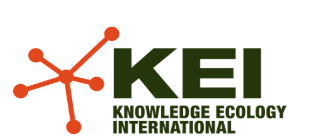| October 9 - 11, 2019 When drug companies become doctors: consequences and responses |
Schedule:
Tuesday, 8 October 201919:30 Welcome Reception and Dinner (for 21 participants staying at the Brocher Foundation)
Welcome - Jamie Love and Ellen ‘t Hoen
Wednesday, 9 October 2019
9:00 - 9:10: Welcome and introduction - Thiru Balasubramaniam
9:10 - 13:00 Science and Technology - An overview of cell and gene based treatments
Discussion moderated by Marie-Paule Kieny and James Love
Advanced medical therapies using genes, cells and tissue, introduction to the science and technology
Chimeric antigen receptor T cells (CAR T)
Gene therapies
Clustered regularly interspaced short palindromic repeats (CRISPR)
Etc. (See figure 1 below)
This is an introduction to the science of the new cell and gene therapies. We have a lot of expertise in the room. The session will last all morning on Wednesday, and begin with initial comments from five persons, and then an open discussion with lots of questions and answers in a roundtable format.
Initial Comments: Hannes Braberg, Diane Singhroy, Paul Fehlner, Robert Watson, Tim Hubbard.
10:30 Coffee Break
Discussion continues
13:00 - 14:00 Lunch
14:00 - 18:00 Exploring challenges and solutions to pricing, access and manufacturing cell and gene-based treatments
Introduction to the challenges of manufacturing, pricing and access, broken into two topics, beginning with manufacturing, and section session on pricing and access. Each session will begin with initial comments from persons, and then an open discussion with lots of questions and answers in a roundtable format.
Manufacturing
Discussion moderated by Paolo Foggi
Initial Comments: Paul Fehlner, Renato Massimi, Robert Watson, Marie Paul Kieny
Pricing and Access
Discussion moderated by Ellen ‘t Hoen and Vanessa Lopez
Initial Comments: Gaelle Krikorian, Marcel Van Raaij, Valerie Paris, Paolo Foggi, Richard Sullivan, Vincenzo Pavone, Polly Webster, Gregg Alton, Charles Gore, James Love,
16:00 - 16:30 Coffee break
16:30 - 18:00 Discussion continued
18:00 Drinks
19:30 Group Dinner
Thursday, 10 October 2019
9:00 - 12:30 Legal and Regulatory barriers to providing access to cell and gene-based treatments
DIscussion of legal and regulatory barriers to providing access. Each session will begin with initial comments from persons, and then an open discussion with lots of questions and answers in a roundtable format.
Legal issues - 9:00 - 10:30
Discussion moderated by Thiru Balasubramaniam
Initial Comments: Esther van Zimmeren, Julian Cockbain, Gregg Alton, James Love,
10:30 - 11:00 Coffee break
Regulatory issues - 11:00 - 12:30
Discussion moderated by Yannis Natsis
Initial Comments: Emer Cooke, Marcel Van Raaij
12:30 - 14:00 Lunch and Group Photo
14:00 - 18:00 Normative Proposals, Research Questions, Next Steps
The afternoon session on Thursday will be shaped by the earlier discussions, to ensure that we address topics that need more discussion, and talk about work going forward.
Discussion co-moderated by Ellen ‘t Hoen and Mariângela Simão
16:00 - 16:30 Coffee break
Discussion continued
19:30 Dinner
Place:
Brocher FoundationOrganizers:
- Balasubramaniam Thiru
- Love James
- 't Hoen Ellen
- Toebes Brigit, University of Groningen, Professor (LLM, PhD)
This workshop will bring together biomedical, legal, trade, human rights, and public health experts to examine the implications of Article 27.3(a) of the WTO TRIPS Agreement on the patentability of gene and cell-based therapies including those involving CAR T, CRISPR and other technologies when treatment can be described as a service or a medical procedure, rather than a product. The workshop will explore if certain gene and cell-based treatments are, in fact, exempt from patentability when a country has an exception that mirrors Article 27.3(a) of the TRIPS Agreement. Experts will also discuss non-patent approaches to providing incentives to invest in innovations that delink R&D costs from prices and monopolies on the medical technologies for such treatments, for example innovation inducement prize funds and market entry rewards.
 |  |  |






 Back
Back